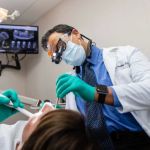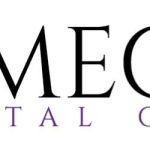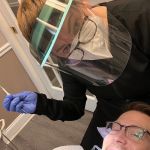Do Hospitals Have Dentists?
As a patient, you may wonder whether hospitals offer dental services. The simple answer is that while hospitals typically do not have general dentists on staff, they do have specialized dental care providers available in certain circumstances. Many people don’t realize that dental care is an essential part of overall health, and hospitals do play a significant role in emergency dental situations. In this article, I’ll share what you need to know about the availability of dentists in hospitals, the services they offer, and how to get dental help in a hospital setting.
1. The Role of Dentists in Hospitals
In the United States, hospitals usually don’t have a general dentist on staff for routine dental checkups, but they do have dental specialists, particularly in emergency situations. Dentists in hospitals mainly work within the context of emergencies, trauma, or certain medical procedures that require dental expertise. For example, if you’re admitted to a hospital for a serious accident that involves your mouth or teeth, an oral surgeon or a maxillofacial specialist might be called in to treat you.
Additionally, some hospitals, particularly large medical centers or teaching hospitals, may have a dental department or oral surgery department. These departments are often involved in providing specialized care for patients with complex needs, including surgeries for severe dental issues, facial injuries, or cancer treatments that affect the mouth and jaw.
2. When to Seek Dental Care at a Hospital
If you find yourself in need of dental care while in the hospital, it’s usually because of an emergency or medical complication. Here are some common scenarios where you might require hospital-based dental care:
- Dental Emergencies: If you suffer a serious tooth injury, such as a knocked-out tooth or severe facial trauma, a hospital can provide immediate care.
- Oral Surgery: In cases requiring surgery for conditions like wisdom teeth removal or jaw reconstruction, hospitals may involve oral surgeons.
- Infection Control: If you have a serious dental infection that spreads to other parts of your body, like an abscess that leads to sepsis, you may be treated in the hospital.
- Medical Conditions: Certain medical conditions may require dental care as part of overall treatment, such as cancer patients undergoing chemotherapy who may need treatment for mouth sores or infections.
3. Hospital Emergency Rooms and Dental Care
When people think of dental care in hospitals, they often think about emergency rooms (ERs). While the ER is primarily for life-threatening medical conditions, it can also be the place where people seek immediate care for dental emergencies. For instance, if you experience severe tooth pain, an infection, or a facial injury related to your teeth, the ER might be the first place you go.
However, it’s important to note that ERs are not equipped to handle non-life-threatening dental issues, such as routine checkups or fillings. Emergency room doctors may provide temporary pain relief or treat infections until you can see a dentist. If the situation requires more specialized care, they will refer you to an oral surgeon or another dental professional.
4. What to Expect from Dental Care in a Hospital
If you end up needing dental care in a hospital, you might be wondering what to expect. The process can vary depending on the severity of your situation and the type of dental specialist involved. Here’s a general overview of what you might experience:
- Consultation: A dentist or oral surgeon will assess your condition and determine the best course of action. They may perform an examination, take X-rays, or discuss your medical history.
- Treatment: Depending on the situation, treatment might involve everything from antibiotics for an infection to more complex procedures like extractions or surgeries.
- Follow-up Care: After your treatment, you might need follow-up care, including visits to a dentist or oral surgeon for ongoing recovery or rehabilitation.
5. Insurance Coverage for Hospital Dental Services
Dental care in hospitals is often covered under medical insurance, but it’s important to check with your insurance provider. Dental treatments in hospitals, particularly those related to trauma or medical conditions, may be covered under your health insurance policy. However, routine dental care or elective procedures like teeth cleaning and fillings are generally not covered by health insurance. For these services, you will likely need to visit a private dental office.
6. Dental Services at Large Medical Centers and Teaching Hospitals
Some large medical centers and teaching hospitals have dental schools attached to them, offering a broader range of services. In these settings, dental students, supervised by experienced faculty members, provide dental care. These hospitals can be great options for more complex dental issues or for patients who require specialized treatments that can’t be found in a typical dental office.
For instance, if you have a condition that requires a multidisciplinary approach, such as a complex jaw surgery or a condition affecting both your oral health and other medical needs, a hospital setting may be your best bet. The dental team at these centers works closely with other specialists to ensure comprehensive care.
7. Is it Worth Going to the Hospital for Dental Issues?
While hospitals can provide emergency dental care, it’s important to note that they are not the best option for routine or preventive dental care. For regular checkups, cleanings, and non-emergency procedures, you should still visit a private dentist. Hospitals are better equipped to handle urgent situations, but for day-to-day dental needs, your regular dentist is the right choice.
Remember, if you find yourself in a situation where you need immediate dental care and cannot reach your dentist, hospitals can be a valuable resource. Whether it’s for a traumatic injury or an infection that requires urgent attention, don’t hesitate to seek care at your nearest emergency room or hospital.







 Sugar Hill Family Dental4.0 (83 review)
Sugar Hill Family Dental4.0 (83 review) Cazes Family Dentistry LLC4.0 (61 review)
Cazes Family Dentistry LLC4.0 (61 review) Omega Dental Care4.0 (74 review)
Omega Dental Care4.0 (74 review) Dr. Stephen M. Buchanan, DDS3.0 (10 review)
Dr. Stephen M. Buchanan, DDS3.0 (10 review) Samson Wahl & Associates5.0 (6 review)
Samson Wahl & Associates5.0 (6 review) Fair Lawn Periodontics & Dental Implants4.0 (191 review)
Fair Lawn Periodontics & Dental Implants4.0 (191 review) The Importance of Oral Health Education During Pregnancy for a Healthy Pregnancy
The Importance of Oral Health Education During Pregnancy for a Healthy Pregnancy Best Tips for Brushing Your Teeth Properly for Healthy Gums: Essential Techniques for Oral Health
Best Tips for Brushing Your Teeth Properly for Healthy Gums: Essential Techniques for Oral Health Why Skipping Dental Checkups Can Lead to Bigger Oral Health Problems
Why Skipping Dental Checkups Can Lead to Bigger Oral Health Problems Advantages of Porcelain Dental Restorations
Advantages of Porcelain Dental Restorations How Can Diabetes Cause Tooth and Gum Problems? Preventing and Managing Oral Health Issues
How Can Diabetes Cause Tooth and Gum Problems? Preventing and Managing Oral Health Issues Healthy Habits for Promoting Good Oral Health and Hygiene: Tips for a Healthy Smile
Healthy Habits for Promoting Good Oral Health and Hygiene: Tips for a Healthy Smile